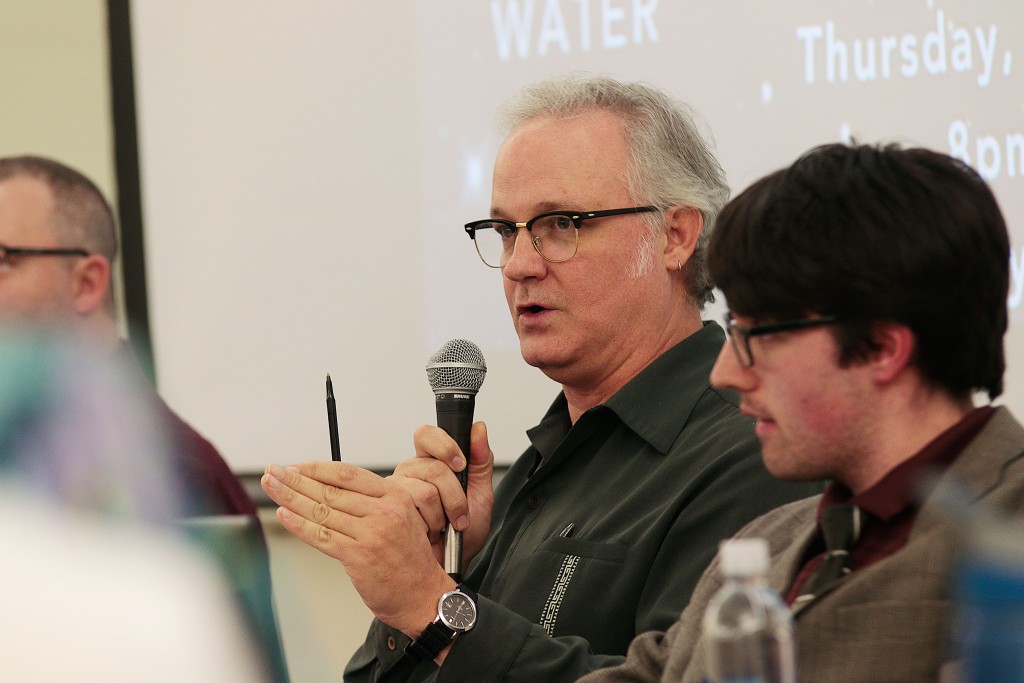
As humans delve further into space exploration, questions arise over how to approach the future of studying the stars. More than 100 students came together on Thursday night to listen to a panel discussion about the ethics in space.
The discussion, organized by students in the argumentative theory class, took place in the Old University Union. It featured four panelists: NASA Earth Ambassador Nicholas Guydosh; Cameron Hollingshead, a senior majoring in mathematics; philosophy professor Blake Wilson; and astronomy professor Christopher Taylor.
Billed as “Live Debate: The Ethics of Space Exploration,” the space discussion touched on topics ranging from why humans should or should not engage in space exploration to enter potential interactions with extraterrestrial life. Each panelist had two minutes to answer the questions presented to them, and they were allotted 90 seconds to respond to remarks made by other panelists.
One question focused on whether humans should colonize other planets and how they should go about doing so. Throughout their responses, panelists frequently referenced the European colonization of America, and whether it was more harmful or beneficial. While Hollingshead said he believed humans should definitely colonize other planets because of all the benefits that came from European colonization, Wilson disagreed.
“No, we should not be colonizing these other areas,” Wilson said. “We could look at history to see what humans do when they colonize. There are a lot of places where we could theoretically stick people, but that doesn’t mean there should be colonization of these places.”
According to Taylor, when deciding whether to colonize a planet, one should consider whether the planet is already populated.
“We should really think hard if we’re trying to colonize a planet that has life already,” Taylor said. “I think if there’s no preexisting culture and there is certainly a benefit for colonizing that planet, I think we should give it an attempt.”
The second half of the debate consisted of a lightning round, where members of the audience were able to ask the panelists original questions. During this portion, attendee Alana Macdonald, a junior majoring in biology, brought up the question of whether or not humans have the right to decide what qualifies as intelligent life.
“We can’t put a label on them because everything is so relative,” Macdonald explained. “How could we define ourselves as intelligent life? We might not be considered intelligent elsewhere.”
Guydosh, who reached out to professor Joseph Leeson-Schatz to participate after hearing about the debate, said this makes it especially important for humans to be careful with how they define intelligent life.
“Intelligent life is very, very subjective,” Guydosh said. “We could go to some other planet and find creatures living there and think they’re a lower form of life, and they’re not.”
Some panelists also touched on whether humans might find themselves needing to colonize another planet in the future. According to Guydosh, this could be a result of climate change or Earth’s impact with an asteroid or comet, turning colonization into a necessity.
Rachel Lackow, one of the event organizers and a junior majoring in nursing, was one of the two moderators of the discussion. According to Lackow, recent discoveries have made this topic especially relevant.
“I think with everything going on, with finding water on Mars or the potential for having salt crystals on Mars, this is becoming more significant,” Lackow said. “This is very fascinating. Discussing this is important.”


